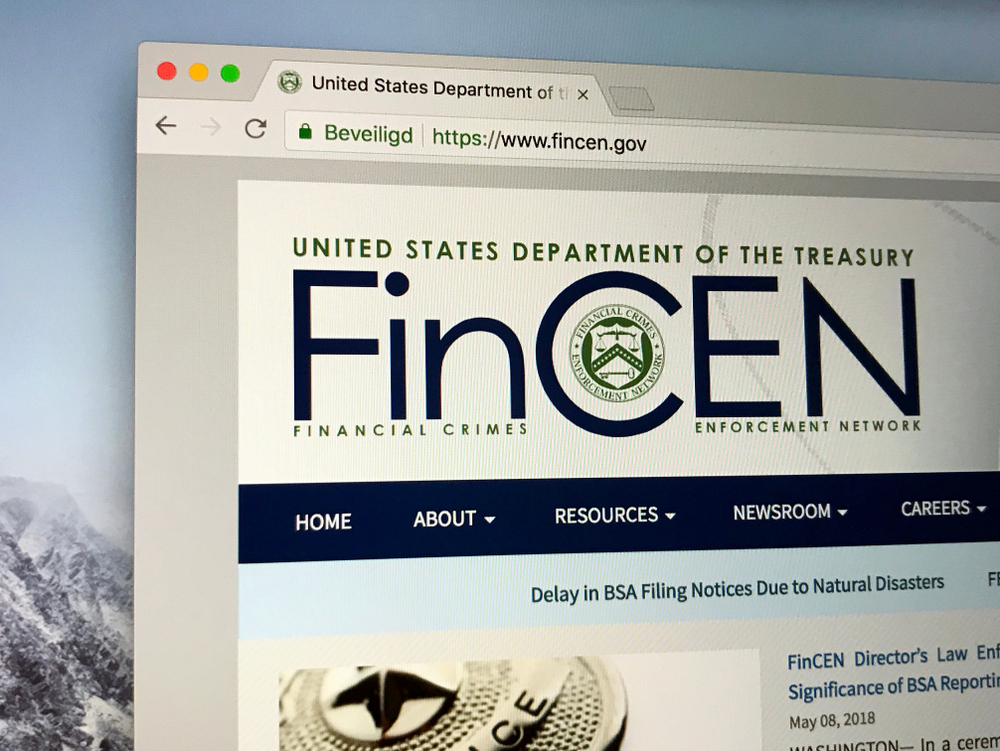The US resolve to mitigate terrorist financing via crypto has heightened the regulator’s scrutiny of suspicious transactions. The US Deputy Treasury Secretary Wally Adeyemo penned a letter to legislators informing them of Hamas reliance on crypto.
The letter coincides with the financial institutions reporting $165M in crypto-based transactions potentially linked to Hamas. In particular, the bureau tasked with combating terrorism financing within the US Treasury Department backed the claims.
Scrutinize Extent of Hamas Financing in $165M Crypto Transactions
The letter signed by Adeyemo illustrates that the Financial Crimes Enforcement Network (FinCEN) assessed the suspicious activity reports submitted from January 2020 to October 2023. The letter analyzed by Heraldsheets targeted the leaders of senate committees on banking and financial services. The letter urges committee support to rally members to enact legislation broadening the Treasury Department’s authority to oversee crypto transactions.
The letter by Adeyemo asserts the need to ascertain the extent of the $165M ties to crypto and Hamas terrorist organizations. The Treasury official notes that a financial institution could have erroneously attributed the entire figure in both fiat and crypto-related transactions to the Palestinian-based terrorist group. Instead, the letter admits the likelihood of only a portion of the activity constitutes the terrorist financing activity.
FinCEN established that over 200 crypto addresses were likely used in executing the transactions. Nonetheless, the letter revealed that the Treasury Department was still analyzing the threats inherent in crypto and related services.
Treasury Department to Sustain Ongoing Scrutiny into Terrorist Financing via Crypto
The letter informed the Senate committee leaders that the Treasury Department will sustain the ongoing assessment of whether Hamas and other terrorist groups have a preference for the traditional financial avenues. The letter expressed concerns that the efforts to cut the terrorists from accessing traditional finance were drawing them towards virtual assets.
The letter’s content first appeared in the Wednesday, March 13 publication of The Wall Street Journal. Adeyemo’s sentiments conveyed via the letter echo the pronouncements by other Treasury officials in the recent past. The officials have indicated that terrorists have limited the utilization of crypto.
The lawmakers have devoted themselves to scrutinizing the role that crypto played in the early October attack by Hamas on Israel. The unprecedented attack saw 1,200 lives lost, prompting Israel to declare war against Hamas in Gaza.
A review of the death toll since the Israel Defence Forces (IDF) embarked on a military response to Hamas terrorists has seen the death toll high, north of 30,000.
The letter serves as a response to the open letter drafted by the House Majority Whip Tom Emmer (R-Minnesota) alongside the House Financial Services Committee (HFSC) chair Patrick McHenry (R-North Carolina). The letter urged the Treasury Department, in November 2023, to clarify the extent to which Hamas was utilizing the crypto.
Clarity Necessary in Fighting Crypto Use in Financing Terrorists
The inquiry letter by the lawmakers sought an update on behalf of Congress urging the Treasury on the actual extent following the Wall Street Journal publication on October 10 labeling crypto as the preferred tool by the terror group.
Weeks later, the Treasury Department would seek Congress to broaden its authority to allow it to pursue illicit crypto-based activity executed overseas. Adeyemo references the request, indicating that the analysis was contributed to pending high-level legislative drafts. The earlier proposals constitute the sets drafted to modernize the tools deployed by the Treasury to fight terrorist financing.
Adeyemo is optimistic that the updates will help clarify and expand the coverage into the virtual asset landscape. Clarity in the coverage of new entities in the crypto asset ecosystem is possible and necessary to reprieve those operating within perceived and actual ambiguity relative to the obligations stipulated by the Bank Secrecy Act.
The letter illustrates that realizing a final proposal will explicitly offer missing authority to the Treasury’s Office of Foreign Assets Control (OFAC) to impose secondary sanctions and impactful yet flexible tools against the virtual asset firms facilitating and executing business with the sanctioned entities and individuals.
Editorial credit: Jarretera / Shutterstock.com
